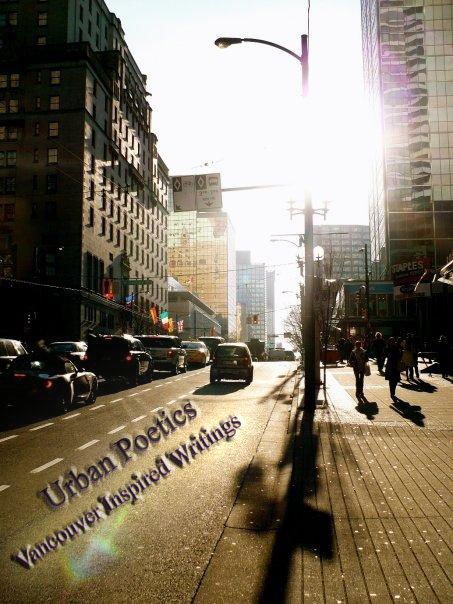What an interesting lecture we had yesterday. It was nice to speak openly about Eliot, and how his writing effects us. I liked listening to the different impressions he made on everyone in the class, and Prof. Sharp's comments regarding them were insightful.
The class brought my attention to a particular part of the Waste Land that I had personally overlooked. I have, since my first reading of the Waste Land, adored, "The Burial of the Dead," and, "A Game of Chess." But the final section, now that we've had a close look at it (I suppose that it relatively speaking; 'closeness' seems an indefinite feat when it comes to Eliot), has incredible depth, a lot of which I still don't understand. Perhaps it will suffice to say that I am closER.
DA- The Thunder. What is DA? Is still tormenting me. The constrasts between anger and peace in the text is like a roller coaster: "Ile fit you!" to "shantih shantih shantih".
But to get back to my old favourites, I'd like to comment on one thing in particular that moved me during class. I had made some obscure comment about "A Game of Chess..." Oh yes, I had mentioned that in Eliot's text I (and others I think too) experience a sense of KNOWING WHAT HE'S TALKING ABOUT even though I probably DON'T. Eliot expresses an EXPERIENCE in his writing that seems to say:
It.
But we just don't know what it is. I gave the example in class:
"Do you know nothing? Do you remember nothing?..."
(from "A Game of Chess")
And I understand it personally though probably not completely, on some emotional-intellectual level that I can define. When I read it aloud I ask the world too this question: Do you remember NOTHING?
The image in my mind when I read it: Two people talking. Personal talk. Perhaps a man and a woman. A woman is speaking, and when she is speaking she is addressing the man, and the entire world (perhaps the Western world) at once. (It feels like a sort of dramatic irony- on stage it is a dialogue between two people, but the audience knows that the question is a rhetorical, mystical, universal question of humankind that silently refers to a traumatic past- the past of revolution and war and suffering- perhaps of overcoming- Do you remember nothing?
Note that Eliot re-invents this sense of dramatic irony- he makes it new, even more subtle, perhaps.)
NOTHING> After I ranted about that for a while, Professor Sharp said yes and then he paused and he faced the class and said, "But do you notice that it is impossible to remember nothing." In a rhetorical sort of way and then he said, "Think about it. Really can you try to remember nothing? It is the mystical, not-possible metephor. You cannot remember nothing."
In my mind the image changed. The lady was saying, "Do you remember nothing," and the man sits quietly, uncomfortably, a half smile on his face that answers "no". The look on his face is Of Nothing- it is of an ignorant pride. "no I don't." And then there's a picture in his mind, and he sees what the lady is begging of him to see, and he remembers something, still he says "I remember nothing."
The lady knows it is impossible to remember nothing.
The lady is speaking to the world.
Thank you, Professor Sharp for a great class. Professor Kuin, we missed you. I'm looking forward to your reflections when we next see you, in under two weeks from now. I hope we will do some more of Eliot's poetry when you get back- there seems so much here to think about.
Subscribe to:
Post Comments (Atom)


1 comment:
Hi Talia,
I'm not quite sure IF he intended for that to happen- you make a good point. I think, in general, that Eliot thinks of poetry in terms of intent; that poetry and form is conciously constructed (he denounces the 'spontaneous overflow of emotion...' that the Romantics claimed)...but whether or not his own writing was true to this in interesting. There is something to be said for that, because it is hard to believe that THIS many references, subtleties, ambiguities in form, could be purposeful...how concious can a craftsperson be?
Post a Comment